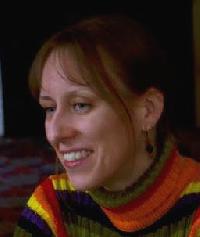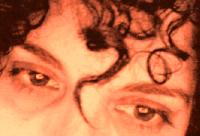| Pages in topic: [1 2] > | Poll: Did you study at a university to become a translator? Thread poster: ProZ.com Staff
|
|---|
This forum topic is for the discussion of the poll question "Did you study at a university to become a translator?".
This poll was originally submitted by Smart T
View the poll here
A forum topic will appear each time a new poll is run. For more informat... See more This forum topic is for the discussion of the poll question "Did you study at a university to become a translator?".
This poll was originally submitted by Smart T
View the poll here
A forum topic will appear each time a new poll is run. For more information, see: http://proz.com/topic/33629 ▲ Collapse
| | | |
I did, because it is the profession I chose and university training gives you the tools. I do not want to start the discussion already presented in some forum ("many great translators did not have a translation degree", etc) because anything is possible. However, many who do not have a degree have never been exposed to comparative linguistics and grammar analysis, phonetics, style, writing lessons, etc etc. Therefore I am in favour of university studies.
| | | | Brandis (X)
Local time: 12:44
English to German
+ ...
| No I did not to be honest | Nov 10, 2006 |
It all had actually started with a call in our faculty and autonomous seminars etc., that had finally lead me and many others from the university campus into a closed community later teach " Deutsch für die Auslander " and we had redigned the idea into "Deutsch für die Deutschen". I had no language education. All the rest was a working process, which taught me and we taught back.Best Brandis
| | | | Patricia Rosas 
United States
Local time: 03:44
Spanish to English
+ ...
In memoriam | I didn't, but oh, I wish I had ... | Nov 10, 2006 |
María José Cerdá wrote:
many who do not have a degree have never been exposed to comparative linguistics and grammar analysis, phonetics, style, writing lessons, etc etc. Therefore I am in favour of university studies.
I studied anthropology and then got an interdisciplinary degree in Latin American Studies. There was a course of study in translation available at a nearby university, but I could never get the information I needed about enrolling (very strange), so I opted for a certificate in translation through my university's extension department. I needed to complete five (six?) courses and only did three before moving away. In any case, this training was not theoretical, but rather practical...
I would love to know more, and perhaps someday, I'll be able to do coursework on-line, but for now, I had to answer no
| | |
|
|
|
Parrot 
Spain
Local time: 12:44
Spanish to English
+ ...
| Not "to become a translator" | Nov 10, 2006 |
to be honest, but translation was the first job I got. I first trained on the job.
The year I was graduating, the university curriculum committee began to study the feasibility of opening a translation course. Five years later, the degree was opened at the MA level. There was no undergraduate course. In this sense, I think it would be fair to say that translation was not an academic undergraduate option for many.
I finally got my graduate translation diploma abroad, whi... See more to be honest, but translation was the first job I got. I first trained on the job.
The year I was graduating, the university curriculum committee began to study the feasibility of opening a translation course. Five years later, the degree was opened at the MA level. There was no undergraduate course. In this sense, I think it would be fair to say that translation was not an academic undergraduate option for many.
I finally got my graduate translation diploma abroad, while working at the same time as a (guess what?) translator. ▲ Collapse
| | | | Suzanne Blangsted (X) 
Local time: 03:44
Danish to English
+ ...
| not to become a translator | Nov 10, 2006 |
Although I studied languages as a major at a university, I had no plans of becoming a translator. I was interested in medicine, which I also studied. After my immigration to the US and working with physicians, I was asked to translate some documents for one of them. This showed me that I really liked to translate. First only translating medicine then branching out into other fields, and I really enjoy my work.
| | | | Williamson 
United Kingdom
Local time: 11:44
Flemish to English
+ ...
| Not to become a translator, | Nov 10, 2006 |
but an interpreter. Unfortunately, except for one or two assignments a year, outside the E.U.-institutions, there is no market for interpreting into Dutch.
So, this will mean that I will have to try to get into a course from foreign>Dutch mixed with foreign>foreign. Difficult to make people responsible for admission understand that. Native language only, which makes more sense for interpreting.
[Edited at 2006-11-10 18:28]
| | | | | Not to become a translator | Nov 10, 2006 |
I studied languages, because I wanted to speak them and because I love languages.
But on studies I had subjects on translation and it was then I discovered that was something I'd like to do in my life.
So, in a way, I became a translator, because of my studies, so the other way around.
Anni
| | |
|
|
|
Nesrin 
United Kingdom
Local time: 11:44
English to Arabic
+ ...
| Ditto - Not to become a translator | Nov 10, 2006 |
M. Anna Kańduła wrote:
I studied languages, because I wanted to speak them and because I love languages.
Anni
I too studied translation for the fun of it, or rather, because it was the easiest thing to do (I already spoke Arabic and German) so I had plenty of time to enjoy my student years doing other stuff!!
I'm reminded of a young friend of the family, who recently started studying Spanish and French at University. I asked her what she would like to do when she graduates, she answered "teach languages, or work in an international organisation.... or, if all goes wrong, I can always work as a translator!"
| | | | Angela Dickson (X) 
United Kingdom
Local time: 11:44
French to English
+ ...
... I did a languages degree and was a bit of a square peg in a round hole - most people were doing two languages and I chose to do just one (because I got to do linguistics if I only took one language) and the course was very literature-based, and while I liked that I wasn't particularly talented at it. My tutor called me a 'linguist's linguist' and while he didn't particularly intend it as a compliment, he made sure I got the tuition I needed in linguistics and translation from other people, s... See more ... I did a languages degree and was a bit of a square peg in a round hole - most people were doing two languages and I chose to do just one (because I got to do linguistics if I only took one language) and the course was very literature-based, and while I liked that I wasn't particularly talented at it. My tutor called me a 'linguist's linguist' and while he didn't particularly intend it as a compliment, he made sure I got the tuition I needed in linguistics and translation from other people, so my interests were catered for (this is the beauty of the system at my university, it can be nice and flexible like that).
During this time I conceived a slightly misguided passion for linguistics, so went off to do a Master's in theoretical linguistics - which was expensive, so I took a job as a medical secretary to pay the bills. This turned out to be really interesting work, and I kept the job after finishing the Master's - and then decided that I would follow up my interest in translation (I hadn't done much, but had liked the literary translation we tackled as undergraduates). I followed a course to get the IoL Diploma, and started to get a bit of work, and now am working freelance and increasingly getting medical translation work, and learning all the time. I feel very lucky!
All the rest of it (learning to run a business, CAT tools, etc) I have picked up as I went along and with the help of various networks, particularly the ITI in the UK which runs a special scheme for beginning freelancers. ▲ Collapse
| | | | | I am not sure | Nov 10, 2006 |
I am not sure I can answer “Yes” to this poll. I am a linguist but not a translator. Though I have studied several languages very thoroughly, including history of language, theoretical grammar and phonetics, lexicology, stylistics, comparative linguistics, etc., I have never been introduced to the art and science of translation, because it just did not exist as a discipline, and even if it had existed, I would hardly have chosen it because I never though I would become a translator.
| | | | Cristina Golab 
United States
Local time: 06:44
English to Spanish
+ ...
| I am still doing it! | Nov 10, 2006 |
I completed my undergraduate studies on languages with a major in translation. After I finished my studies, I started working as a freelancer and then got another job where probably 80% of my duties involved translation or interpreting. Now I am doing a MA on Bilingual Translation, and I expect to complete a PhD in the future.
| | |
|
|
|
Jorge Payan 
Colombia
Local time: 05:44
Member (2002)
German to Spanish
+ ...
| I don´t see the need of it for becoming a technical translator | Nov 11, 2006 |
I did study at the university for becoming an engineer. 25 years of "on-hands" experience in sales, marketing, project management, maintenance, etc, from the perspective of the seller, the buyer and the final user, plus the love for languages plus a good handling of the CAT tools have contributed to make of me a person proud of his achievements in this profession.
I firmly believe that no matter how many degrees you have in translation related disciplines, it is very hard for a non-... See more I did study at the university for becoming an engineer. 25 years of "on-hands" experience in sales, marketing, project management, maintenance, etc, from the perspective of the seller, the buyer and the final user, plus the love for languages plus a good handling of the CAT tools have contributed to make of me a person proud of his achievements in this profession.
I firmly believe that no matter how many degrees you have in translation related disciplines, it is very hard for a non-technical person to equal a rock-bottom technical translation made by an expert on the particular subject. I translate for the final user, which I have been and will be.
In the same sense, I don't even consider to do a literary translation. Simply, I am not fit for it. ▲ Collapse
| | | | Balasubramaniam L. 
India
Local time: 16:14
Member (2006)
English to Hindi
+ ...
SITE LOCALIZER | Yes, but not with the intention of becoming a translator | Nov 11, 2006 |
I did my Masters in Hindi language from Delhi University, mainly because of my interest in the Hindi language and the desire to study its literature and grammar formally. There was a paper on linguistics and translation techniques in the second year of the course.
But I had been writing in Hindi and translating into and from Hindi much before that.
I followed up my M.A. degree in Hindi with another Master's degree in Computer Application (MCA). Again the intention here ... See more I did my Masters in Hindi language from Delhi University, mainly because of my interest in the Hindi language and the desire to study its literature and grammar formally. There was a paper on linguistics and translation techniques in the second year of the course.
But I had been writing in Hindi and translating into and from Hindi much before that.
I followed up my M.A. degree in Hindi with another Master's degree in Computer Application (MCA). Again the intention here was not to make use of it in my translation work, but to become a software engineer (which I never did in the end).
But the MCA degree came in very handy later when I took up translation/localization of websites, computer games and software packages into Hindi.
So formal education in any field is very useful to a translation careerist, because translation stands on two legs, one of which is knowledge of the subject matter, the other being the knowledge of source and target language. ▲ Collapse
| | | | | Variation on a theme | Nov 11, 2006 |
So many have said "not to become a translator." I say the same but from a different angle. I was already a translator but I knew I wasn't good enough, didn't have the right resources, needed to learn from others. When I found an M.A. program in translation, it "happened" to be at exactly the right time in my life to be able to enroll. And it has made a world of difference!
I was already a translator; a good one, I think. But now I'm a much better one--plus, the contacts I made at th... See more So many have said "not to become a translator." I say the same but from a different angle. I was already a translator but I knew I wasn't good enough, didn't have the right resources, needed to learn from others. When I found an M.A. program in translation, it "happened" to be at exactly the right time in my life to be able to enroll. And it has made a world of difference!
I was already a translator; a good one, I think. But now I'm a much better one--plus, the contacts I made at the university supply most of my clients. And I finally have people to talk to about this weird passion of mine!
Jane ▲ Collapse
| | | | | Pages in topic: [1 2] > | To report site rules violations or get help, contact a site moderator: You can also contact site staff by submitting a support request » Poll: Did you study at a university to become a translator? | Trados Studio 2022 Freelance | The leading translation software used by over 270,000 translators.
Designed with your feedback in mind, Trados Studio 2022 delivers an unrivalled, powerful desktop
and cloud solution, empowering you to work in the most efficient and cost-effective way.
More info » |
| | TM-Town | Manage your TMs and Terms ... and boost your translation business
Are you ready for something fresh in the industry? TM-Town is a unique new site for you -- the freelance translator -- to store, manage and share translation memories (TMs) and glossaries...and potentially meet new clients on the basis of your prior work.
More info » |
|
| | | | X Sign in to your ProZ.com account... | | | | | |















